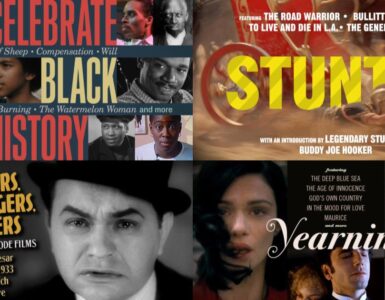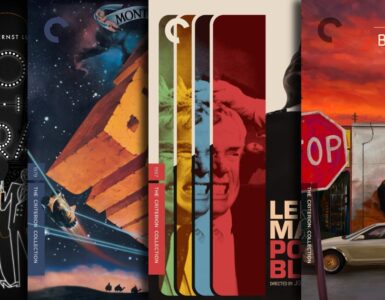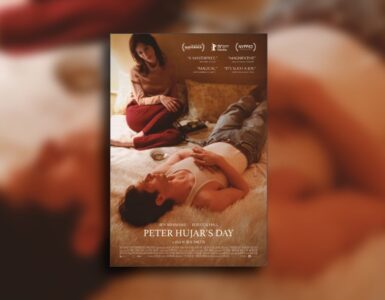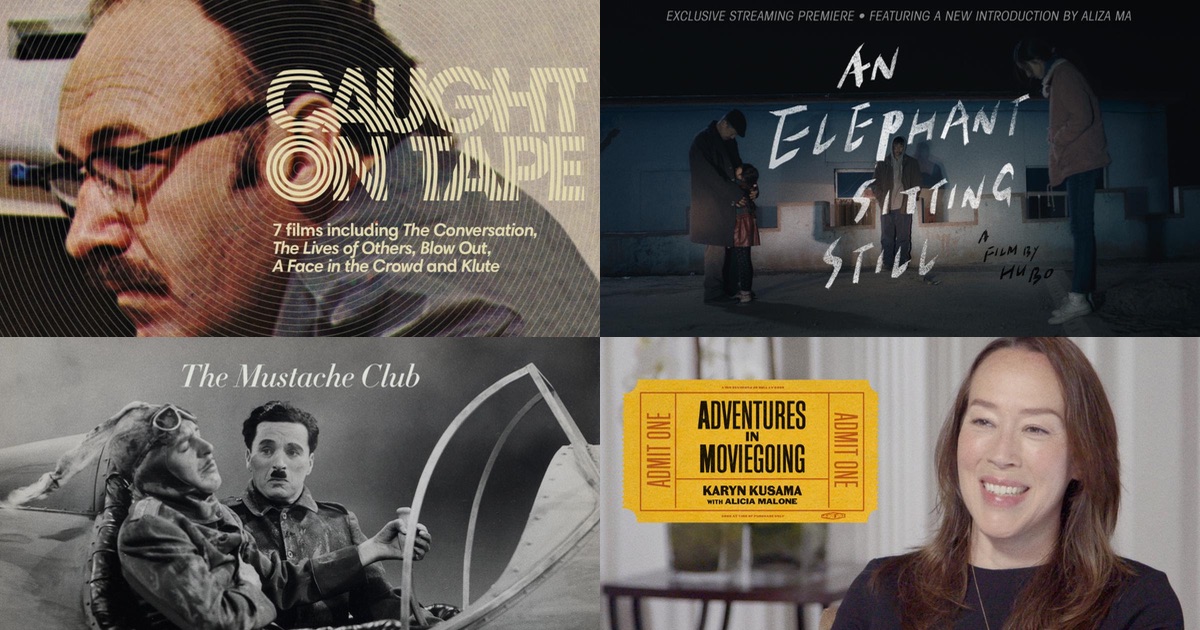
Each month, the programmers at the Criterion Channel produce incredible line-ups for their subscribers. For November, the Channel will feature films from Peter Greenaway, Alice Rohrwacher, Hu Bo, and more!
Below you’ll find the programming schedule for the month, along with a complete list of titles that Criterion has in store for us. Don’t forget to check the Criterion Channel’s main page regularly though, as they occasionally will drop surprises that aren’t included in the official press release.
Don’t subscribe yet? Start a 14-day free trial.
Friday, November 1
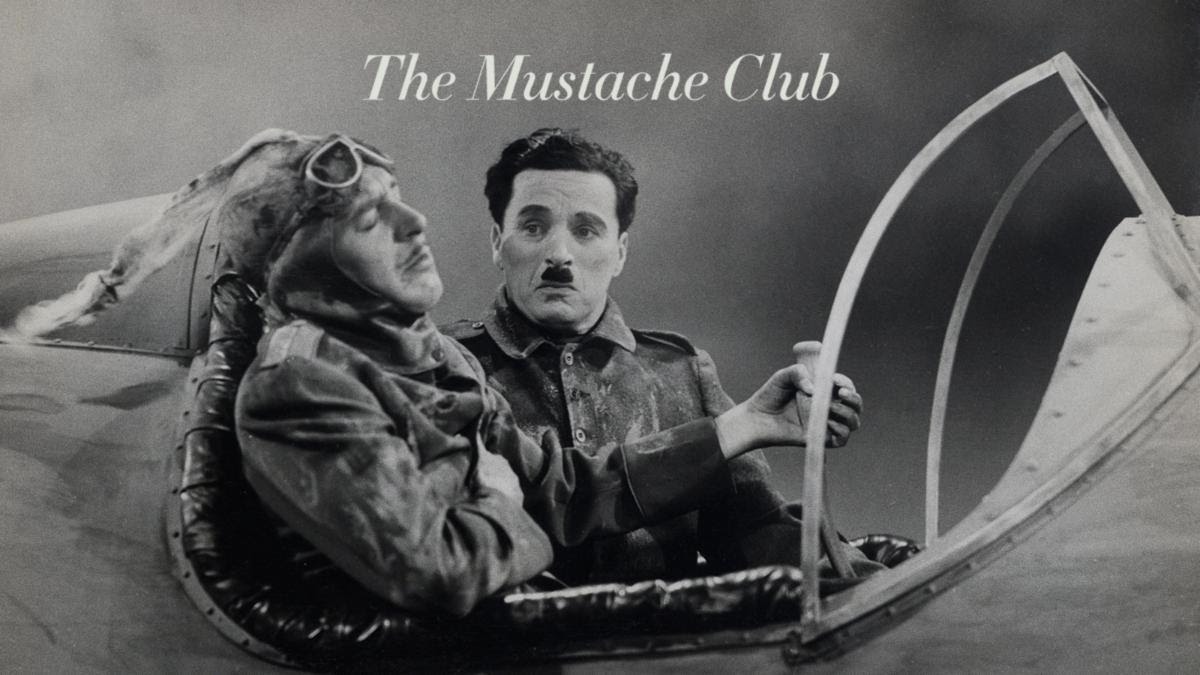
The Mustache Club
Get a load of that ’stache! Whether you’re swearing off shaving for Movember, rock a bushy upper lip year round, or are just an appreciator of fine facial hair, you’re invited to bask in the glory of some of the biggest, glossiest, and most impressive mustaches ever to grace the screen. From the scene-stealing walrus whiskers sported by Roger Livesey in Powell and Pressburger’s Technicolor masterpiece The Life and Death of Colonel Blimp to the drawn-on curlicue worn by honorary club member Jeanne Moreau in François Truffaut’s New Wave classic Jules and Jim to the broom-sweeper adorning the face of Bruno Ganz in Wim Wenders’ thriller The American Friend, these hirsute appendages are true follicles de grandeur.
- The Thief of Bagdad, Ludwig Berger, Michael Powell, and Tim Whelan, 1940
- The Great Dictator, Charlie Chaplin, 1940
- 49th Parallel, Michael Powell, 1941
- The Life and Death of Colonel Blimp, Michael Powell and Emeric Pressburger, 1943
- Jules and Jim, François Truffaut, 1962
- High and Low, Akira Kurosawa, 1963
- Capricious Summer, Jiří Menzel, 1968
- The American Friend, Wim Wenders, 1977
Friday, November 1
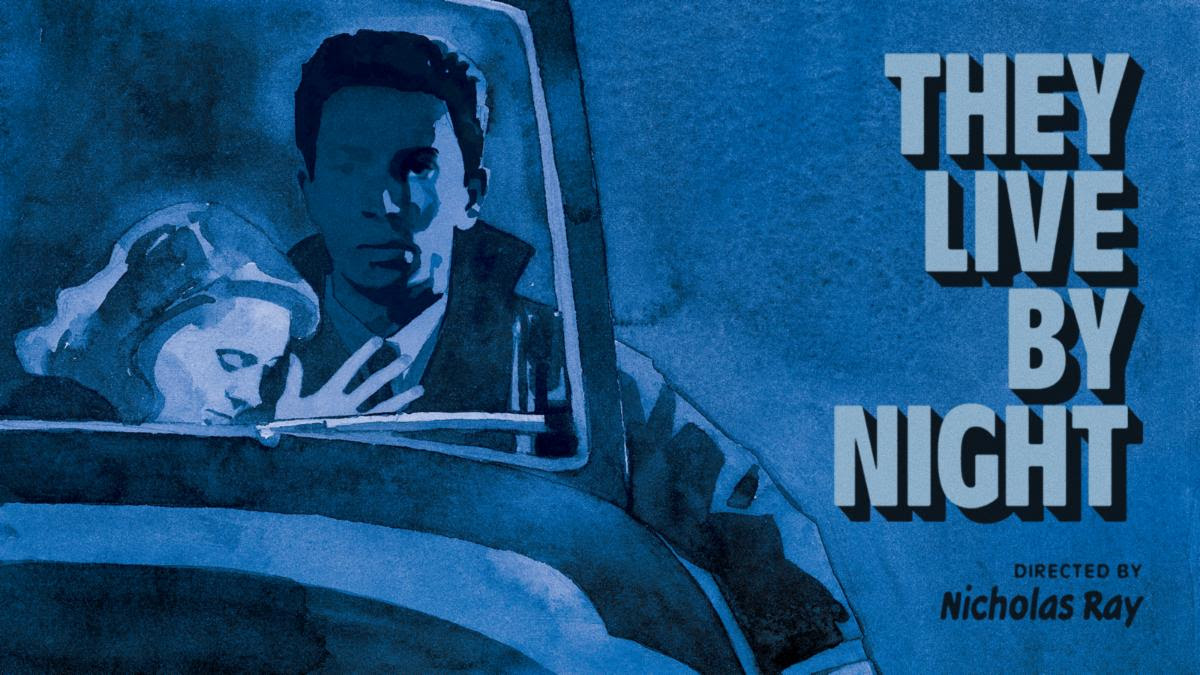
They Live By Night: Criterion Collection Edition #880
Legendary director Nicholas Ray began his career with this lyrical film noir, the first in a series of existential genre films overflowing with sympathy for America’s outcasts and underdogs. When the wide-eyed fugitive Bowie (Farley Granger), having broken out of prison with some bank robbers, meets the innocent Keechie (Cathy O’Donnell), each recognizes something in the other that no one else ever has. The young lovers envision a new, decent life together, but as they flee the cops and contend with Bowie’s fellow outlaws, who aren’t about to let him go straight, they realize there’s nowhere left to run. Ray brought an outsider’s sensibility honed in the theater to this debut, using revolutionary camera techniques and naturalistic performances to craft a profoundly romantic crime drama that paved the way for decades of lovers-on-the-run thrillers to come. SUPPLEMENTAL FEATURES: An audio commentary featuring Farley Granger and film historian Eddie Muller, an interview with critic Imogen Sara Smith, and more.
Friday, November 1

Double Feature: Love Me Do
A Hard Day’s Night and The Hours and Times
In 1964, the Beatles launched a pop-culture revolution with their exuberantly freewheeling film debut, A Hard Day’s Night, a pure-pleasure explosion of swinging-sixties cool, avant-garde invention, and slapstick irreverence. Three decades later, the legend of the Fab Four continues to loom large in Christopher Munch’s 1991 New Queer Cinema milestone The Hours and Times, which imagines an encounter between John Lennon and the band’s visionary manager Brian Epstein during a lost weekend in Spain.
Saturday, November 2
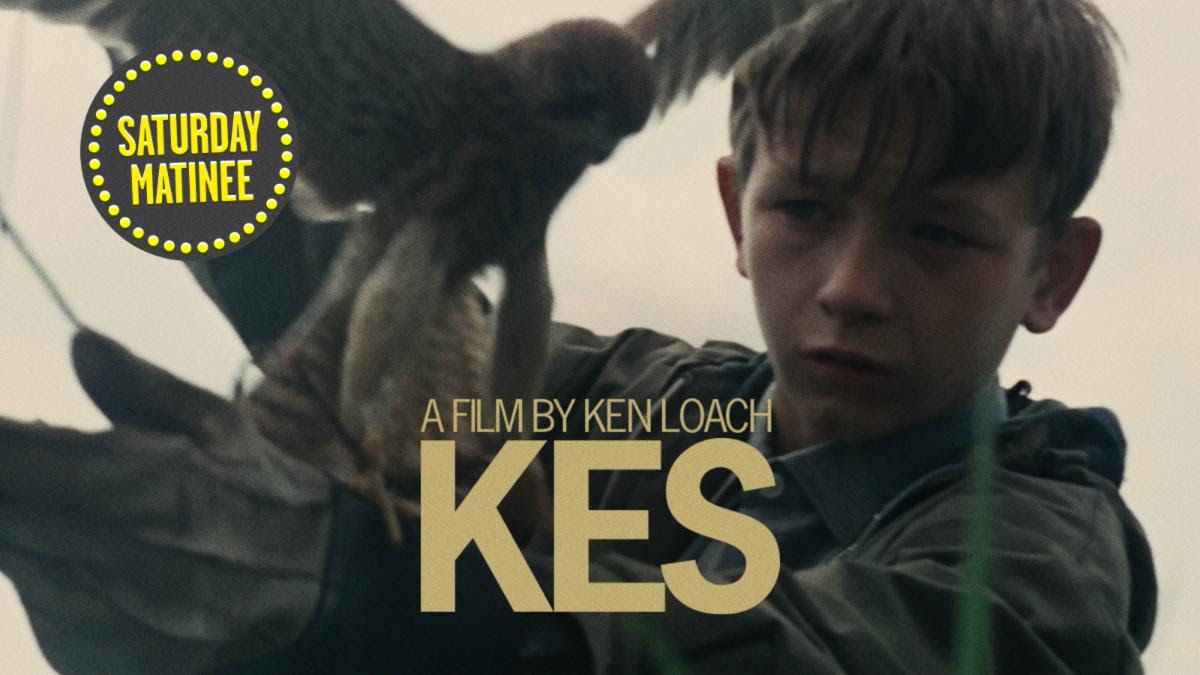
Saturday Matinee: Kes
Featuring an introduction by Bill Hader
Named one of the ten best British films of the century by the British Film Institute, Ken Loach’s Kes is cinema’s quintessential portrait of working-class Northern England. Billy (an astonishingly naturalistic David Bradley) is a fifteen-year-old miner’s son whose close bond with a wild kestrel provides him with a spiritual escape from his dead-end life. Kes brought to the big screen the sociopolitical engagement Loach had established in his work for the BBC, and pushed the British “angry young man” film of the sixties into a new realm of authenticity, using real locations and nonprofessional actors. Loach’s poignant coming-of-age drama remains the now legendary director’s most beloved and influential film. SUPPLEMENTAL FEATURES: A documentary on the making of the film, a 1993 profile of Ken Loach, and Loach’s early television feature Cathy Come Home.
Sunday, November 3
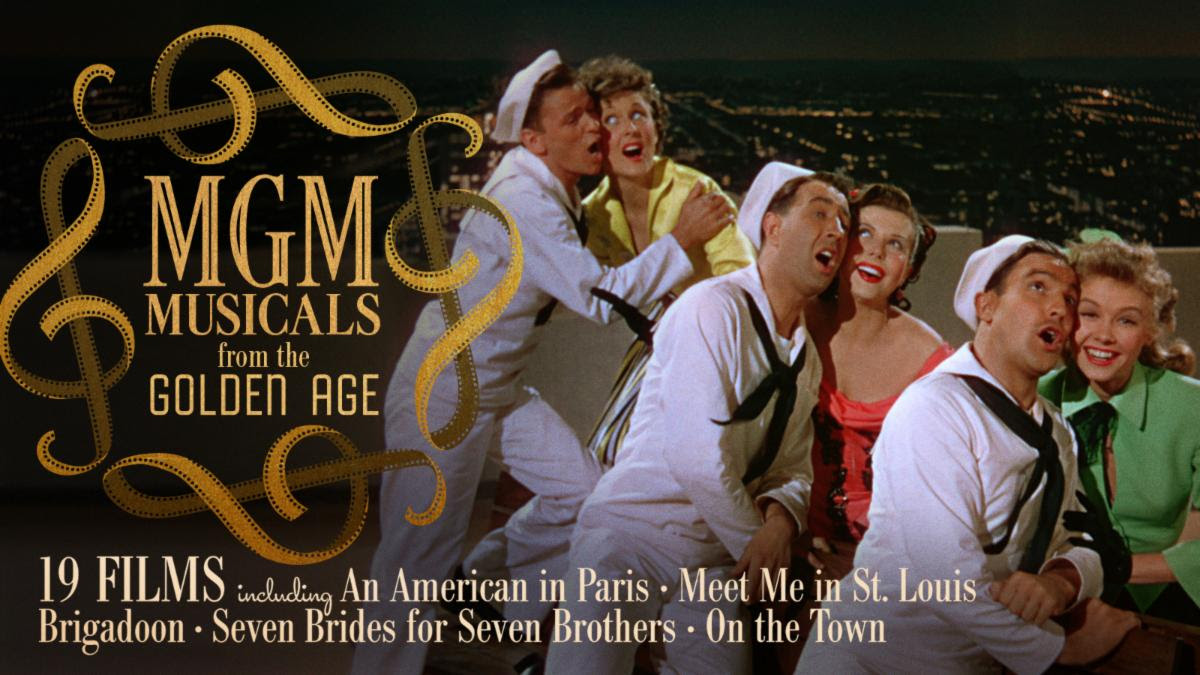
MGM Musicals from the Golden Age
In the heyday of the classic Hollywood musical, one studio reigned supreme: MGM, the dream factory from which emanated gloriously tune-filled enchantments bigger than life, exploding in blazing Technicolor, marvels of craftsmanship and razzle-dazzle entertainment that have never been surpassed in their ingenuity and sheer exuberance. The roster of legendary names say it all, with innovative filmmakers like Vincente Minnelli, Stanley Donen, and Busby Berkeley directing stars like Judy Garland, Gene Kelly, Frank Sinatra, Fred Astaire, Cyd Charisse, Debbie Reynolds, Lena Horne, and Leslie Caron in many of their most iconic performances. From Garland breaking hearts while warbling “Have Yourself a Merry Little Christmas” in Meet Me in St. Louis to Kelly and Sinatra zigzagging across “New York, New York” in On the Town to Astaire tapping up a storm in The Band Wagon, these beloved classics are filled to the brim with some of the most indelible moments of movie magic ever committed to celluloid.
- Broadway Melody of 1940, Norman Taurog, 1940
- For Me and My Gal, Busby Berkeley, 1942
- Cabin in the Sky, Vincente Minnelli, 1943
- Meet Me in St. Louis, Vincente Minnelli, 1944
- The Harvey Girls, George Sidney, 1946
- Easter Parade, Charles Walters, 1948
- The Pirate, Vincente Minnelli, 1948
- On the Town, Stanley Donen and Gene Kelly, 1949
- In the Good Old Summertime, Robert Z. Leonard, 1949
- The Barkleys of Broadway, Charles Walters, 1949
- Summer Stock, Charles Walters, 1950
- An American in Paris, Vincente Minnelli, 1951
- The Band Wagon, Vincente Minnelli, 1953
- Give a Girl a Break, Stanley Donen, 1953
- I Love Melvin, Don Weis, 1953
- Lili, Charles Walters, 1953
- Seven Brides for Seven Brothers, Stanley Donen, 1954
- Brigadoon, Vincente Minnelli, 1954
- It’s Always Fair Weather, Stanley Donen and Gene Kelly, 1955
- That’s Entertainment!, Jack Haley Jr., 1974
Sunday, November 3
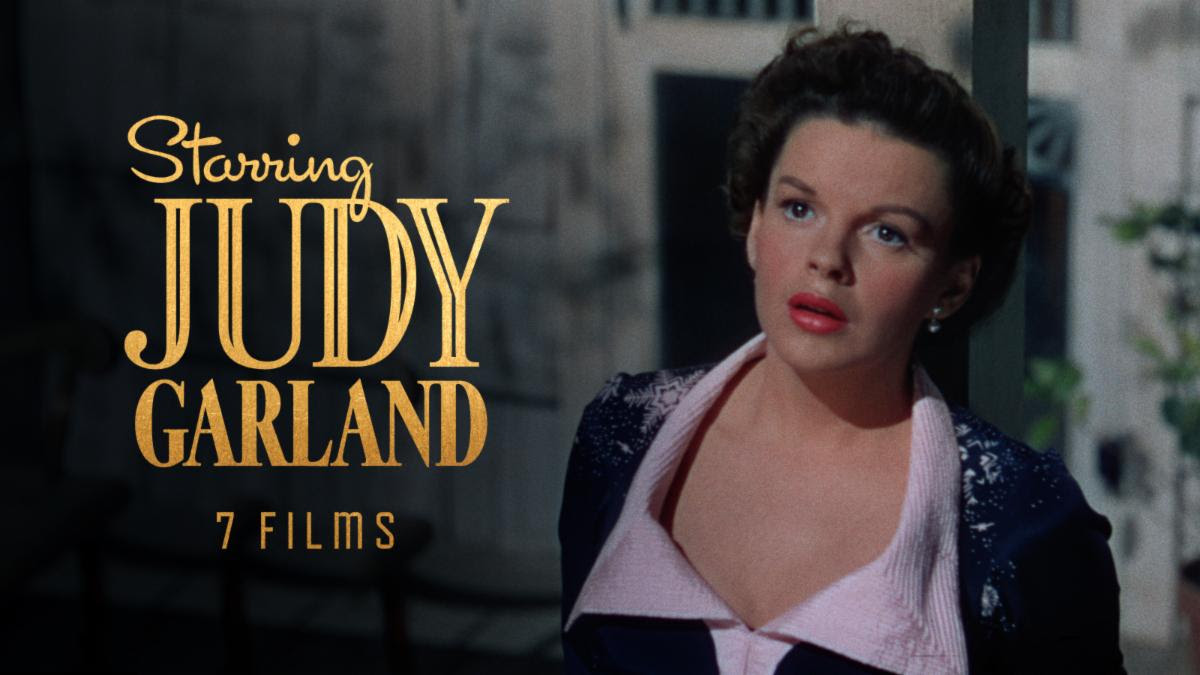
Starring Judy Garland
Both a powerhouse, once-in-a-generation vocalist and an actor of tremulous emotional sensitivity, Judy Garland set the standard for what it means to be a true all-around entertainer. A born-in-a-trunk show-business lifer, she grew up before the eyes of America in the string of showstopping musicals she made at MGM, the studio she called home for much of her career. Built around her supernova talents, these high-water marks of feel-good entertainment capture Garland at her legendary peak: swooning to the strains of “The Trolley Song” in Meet Me in St. Louis; clowning around with Fred Astaire as “A Couple of Swells” in Easter Parade; and lighting up the screen with her iconic rendition of “Get Happy” in Summer Stock, her final film at the studio. Made all the more poignant by the reality of Garland’s often-tragic personal life, these flights of fantasy are enduring testaments to the brilliance of a performer who never gave less than her dazzling all.
- For Me and My Gal, Busby Berkeley, 1942
- Meet Me in St. Louis, Vincente Minnelli, 1944
- The Harvey Girls, George Sidney, 1946
- The Pirate, Vincente Minnelli, 1948
- Easter Parade, Charles Walters, 1948
- In the Good Old Summertime, Robert Z. Leonard, 1949
- Summer Stock, Charles Walters, 1950
Monday, November 4

12 Angry Men: Criterion Collection Edition #591
12 Angry Men, by Sidney Lumet, may be the most radical courtroom drama in cinema history. A behind-closed-doors look at the American legal system that is as riveting as it is spare, this iconic adaptation of Reginald Rose’s teleplay stars Henry Fonda as the dissenting member on a jury of white men ready to pass judgment on a Puerto Rican teenager charged with murdering his father. The result is a saga of epic proportions that plays out over a tense afternoon in one sweltering room. Lumet’s electrifying snapshot of 1950s America on the verge of change is one of the great feature-film debuts. SUPPLEMENTAL FEATURES: The original 1955 teleplay, a production history, archival interviews with Sidney Lumet, and more.
Tuesday, November 5
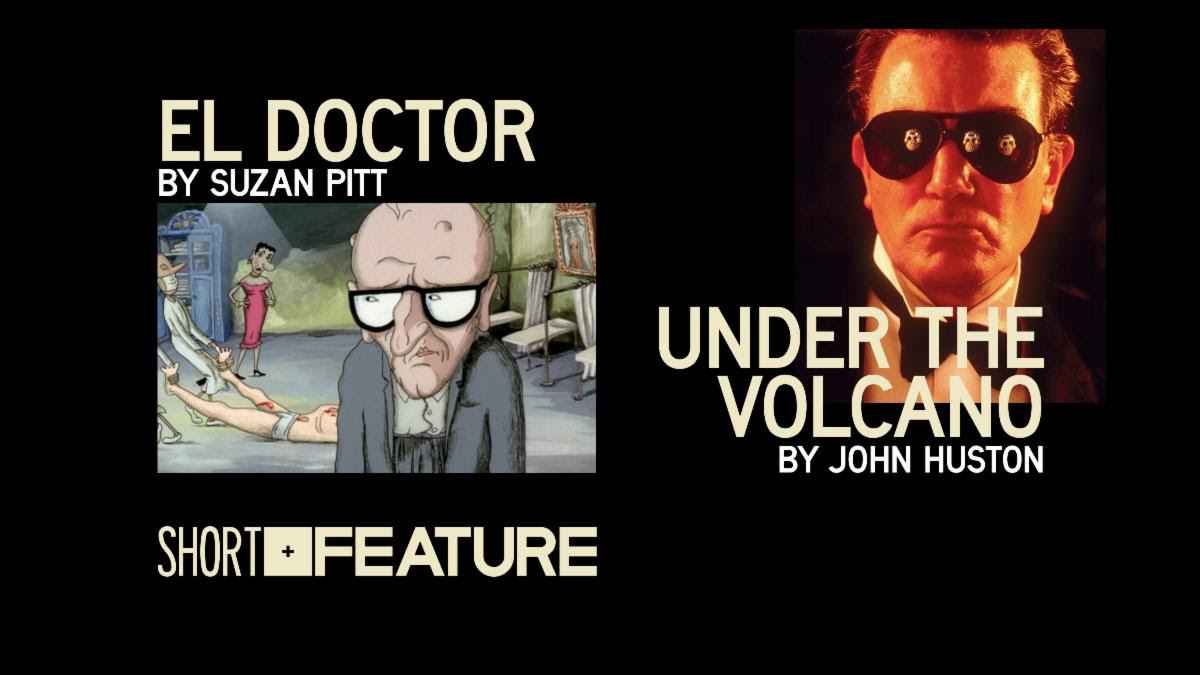
Short + Feature: Last Call
El doctor by Suzan Pitt and Under the Volcano by John Huston
Images of wonder and terror swirl beneath the Mexican sun in these delirious, alcohol-fueled fever dreams. Suzan Pitt’s wildly surreal animated short El doctor is an alternately morbid and miraculous magical-realist tour through a boozehound Mexican doctor’s last moments on earth, featuring a gargoyle spirit guide, a human flower garden, and an equine seduction. It’s paired with another hallucinatory tale of chronic inebriation south of the border, John Huston’s masterful adaptation of Malcolm Lowry’s novel Under the Volcano, built around a towering performance from Albert Finney as a mezcal-swilling ex-diplomat drinking himself into oblivion on the Day of the Dead.
Wednesday, November 6

The Arbor
One of the most formally inventive, fascinating, and radical films in recent memory, Clio Barnard’s electrifying debut feature combines documentary, performance, and fiction as actors lip sync to recorded interviews to tell the harrowing life story of Andrea Dunbar, the brilliant but deeply troubled British playwright who won acclaim for works like “The Arbor” and “Rita, Sue and Bob Too.” Tracing her dark upbringing in the notorious Buttershaw estate in Bradford, her turbulent relationship with her family, and her tragic death at the age of twenty-nine, The Arbor is both a thrillingly innovative work of creative nonfiction and a deeply affecting account of a brief but remarkable life.
Thursday, November 7
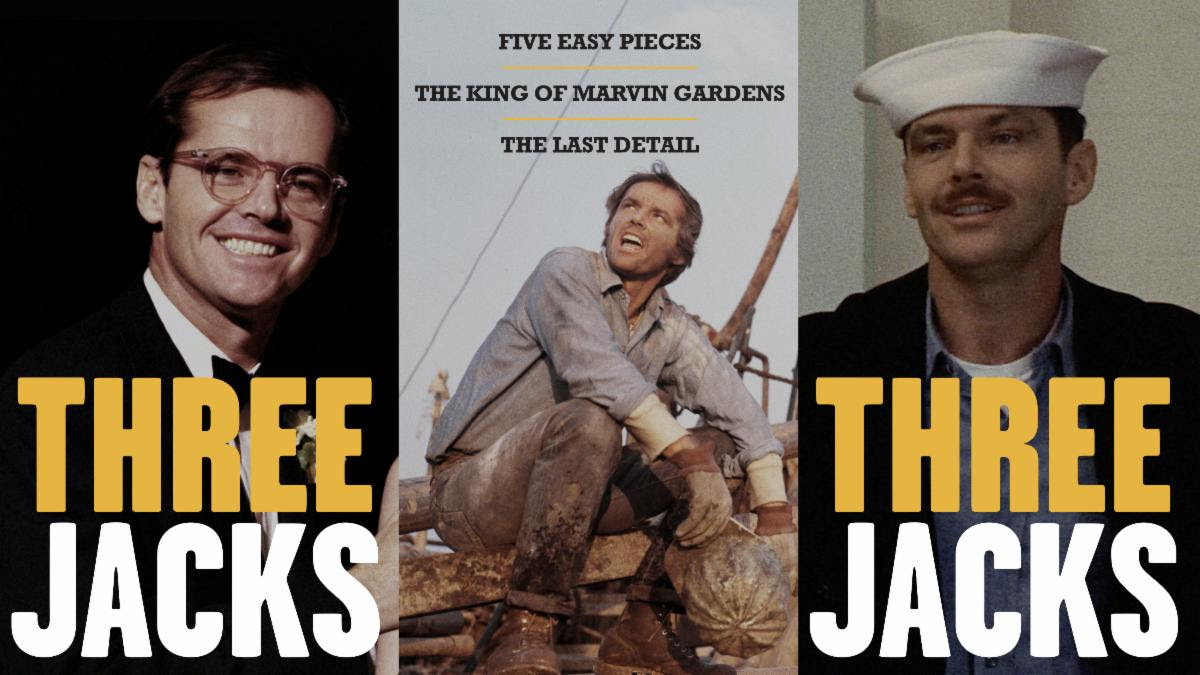
Three Jacks
No actor defined the restless, countercultural spirit of the New Hollywood of the 1970s more completely than Jack Nicholson, whose roguish attitude and explosive yet nuanced performances made him the perfect star for an era when American filmmakers were breaking boundaries in pursuit of uncompromising personal expression. Nicholson began the decade with his iconic turn in Bob Rafelson’s existential road-movie classic Five Easy Pieces, turning a testy, diner-set exchange about toast into an instant pop-culture touchstone and receiving the first of his many Oscar nominations. He went on to dominate the rest of the seventies with a string of virtuoso performances, including his turns as a melancholic radio DJ in the haunting broken-dreams drama The King of Marvin Gardens and as a foul-mouthed sailor in Hal Ashby’s uproariously rude and crude buddy comedy The Last Detail.
- Five Easy Pieces, Bob Rafelson, 1970
- The King of Marvin Gardens, Bob Rafelson, 1972
- The Last Detail, Hal Ashby, 1973
Friday, November 8
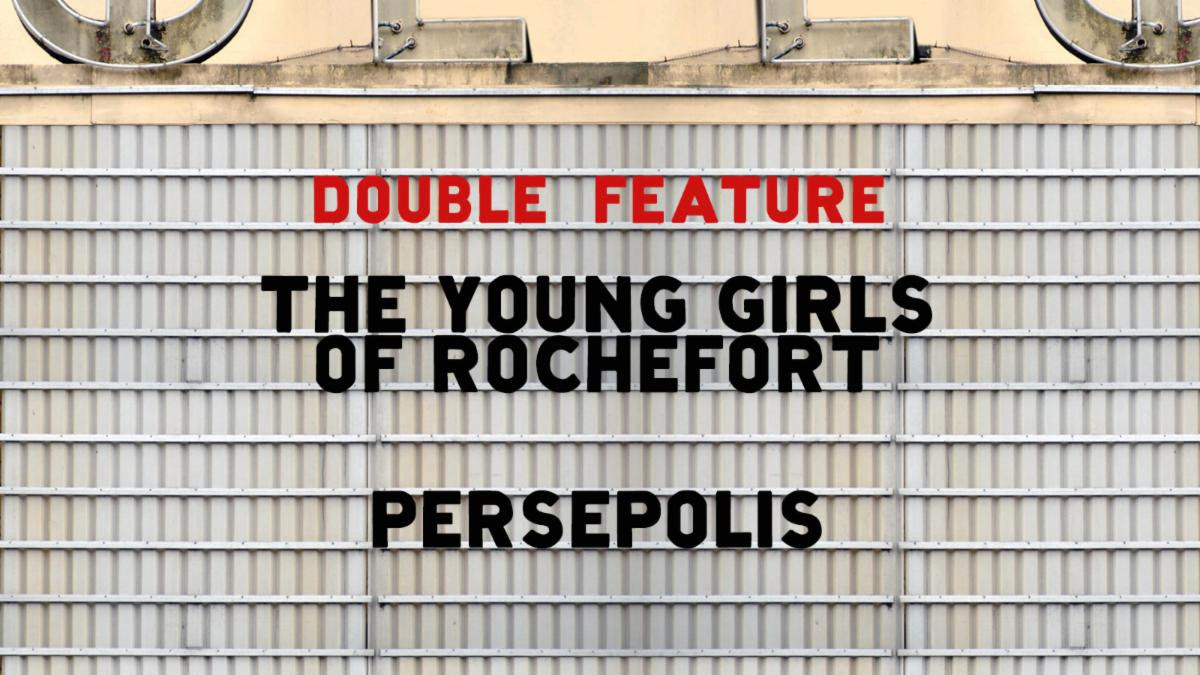
Double Feature: Between Us Girls
The Young Girls of Rochefort and Persepolis
The family dynamics between women—loving, supportive, complicated, strained, stifling, and everything in between—are at the core of these wondrously imaginative explorations of intergenerational bonds featuring two grandes dames of French cinema. In Jacques Demy’s pastel dream musical The Young Girls of Rochefort, the legendary Danielle Darrieux plays the mother of real-life sisters Catherine Deneuve and Françoise Dorléac, starry-eyed twins who inject a bit of joie de vivre into their sleepy seaside town. Both Deneuve and Darrieux lend their voice talents to Marjane Satrapi’s acclaimed animated feature Persepolis—this time as the mother and grandmother, respectively, of a young Iranian woman growing up amid turbulent societal change.
Saturday, November 9
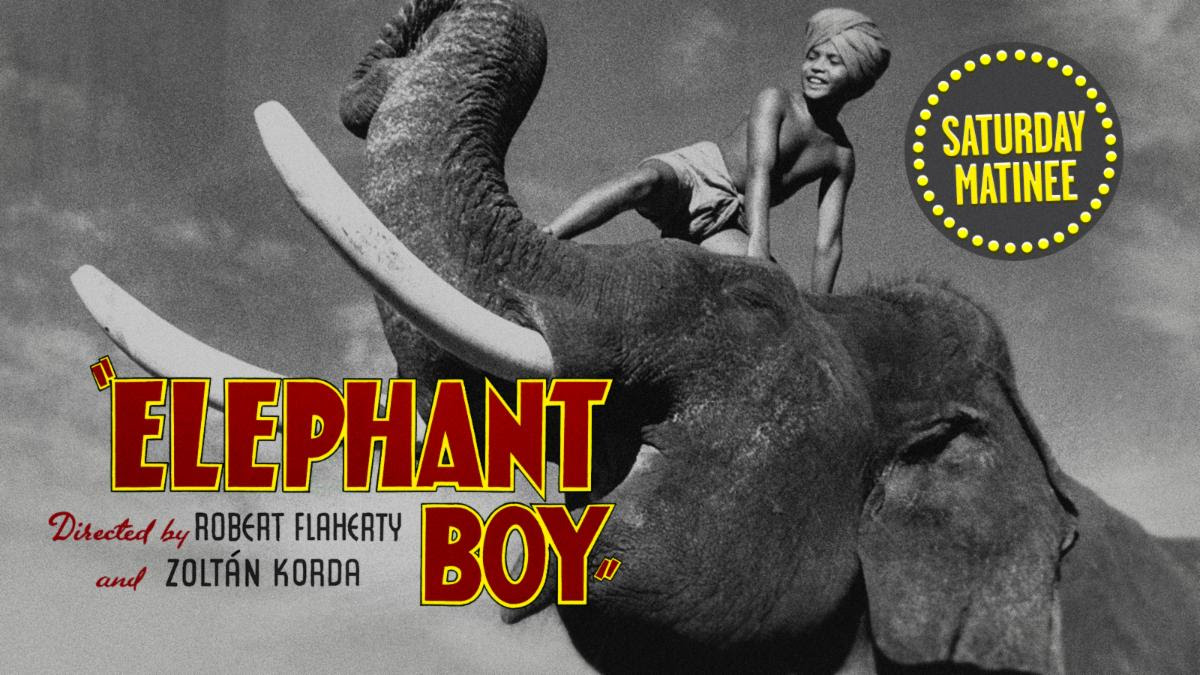
Saturday Matinee: Elephant Boy
Robert Flaherty and Zoltán Korda shared best director honors at the Venice Film Festival for this charming translation of Rudyard Kipling’s Jungle Book story “Toomai of the Elephants.” A harmonious mix of its two filmmakers’ styles—Flaherty’s adeptness at ethnographic documentary meeting Korda’s taste for grand adventure—Elephant Boy also served as the breakthrough showcase for the thirteen-year-old Sabu, whose beaming performance as a young mahout leading the British on an expedition made him a major international star.
Sunday, November 10
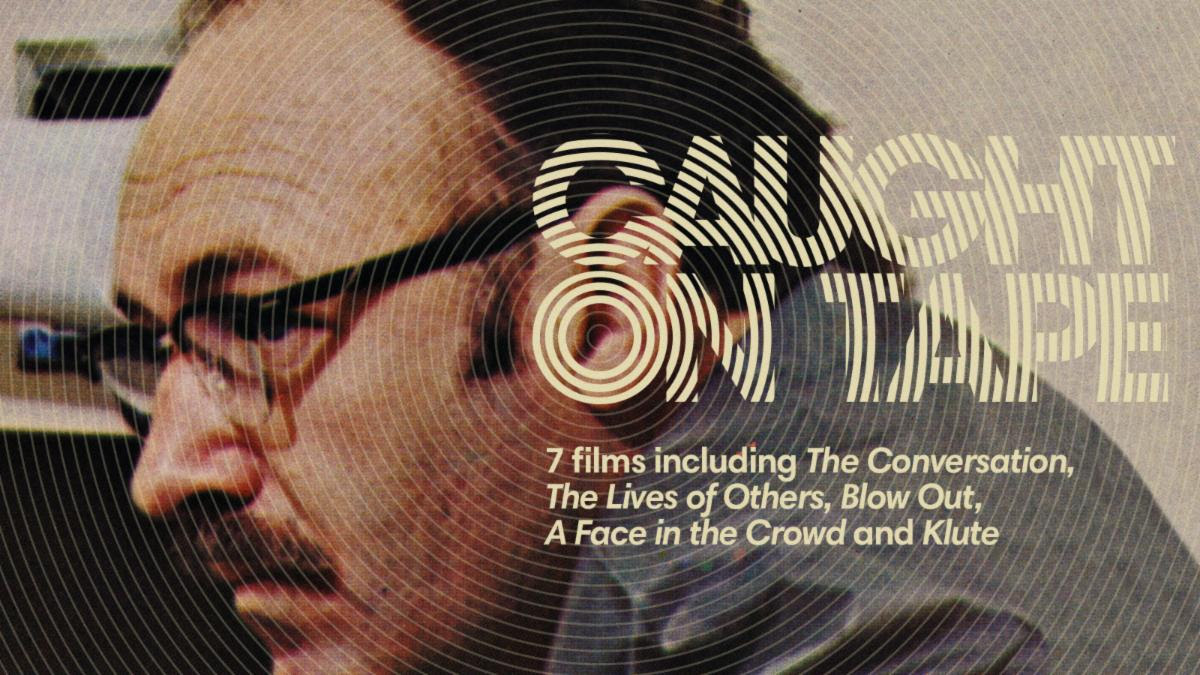
Caught on Tape
Trust no one in these anxiety-inducing tales of surveillance, wiretapping, and paranoia run amok. While New Hollywood auteurs like Francis Ford Coppola, Alan J. Pakula, and Brian De Palma channeled Watergate-era unease into nerve-twisting thrillers like The Conversation, Klute, and Blow Out, European filmmakers have used the theme of surveillance to explore complex webs of human connection, as seen in Krzysztof Kieślowski’s acclaimed final film Three Colors: Red, Jean-Jacques Beineix’s ultra-stylish art-house smash Diva, and Florian Henckel von Donnersmarck’s Oscar-winning espionage drama The Lives of Others.
- A Face in the Crowd, Elia Kazan, 1957
- Klute, Alan J. Pakula, 1971
- The Conversation, Francis Ford Coppola, 1974
- Blow Out, Brian De Palma, 1981
- Diva, Jean-Jacques Beineix, 1981
- Three Colors: Red, Krzysztof Kieślowski, 1994
- Caché, Michael Haneke, 2005
- The Lives of Others, Florian Henckel von Donnersmarck, 2006
Monday, November 11
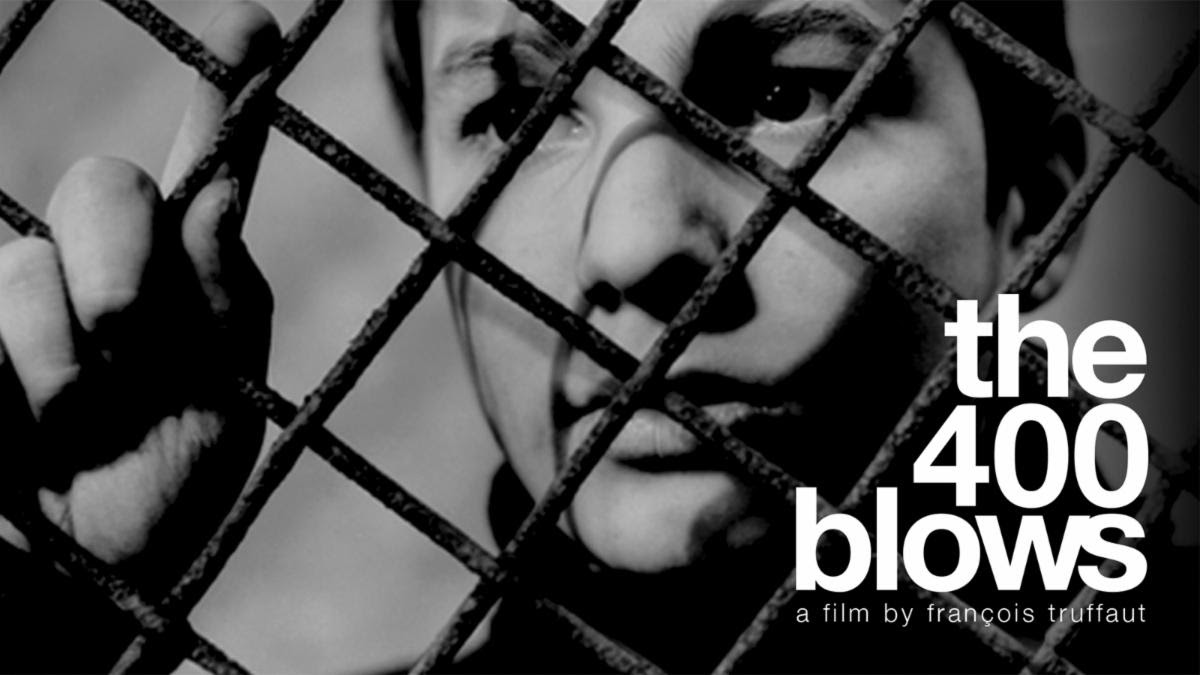
The 400 Blows: Criterion Collection Edition #5
With a new documentary by Daniel Raim featuring François Truffaut’s daughter Laura Truffaut, made to celebrate the film’s sixtieth anniversary
François Truffaut’s first feature is also his most personal. Told from the point of view of Truffaut’s cinematic counterpart, Antoine Doinel (Jean-Pierre Léaud), The 400 Blows sensitively recreates the trials of Truffaut’s own childhood, unsentimentally portraying aloof parents, oppressive teachers, and petty crime. The film marked Truffaut’s passage from leading critic to trailblazing auteur of the French New Wave. SUPPLEMENTAL FEATURES: Two audio commentaries, audition footage, archival interviews with François Truffaut, and more.
Tuesday, November 12

Short + Feature: Listen Up
Death of the Sound Man and Blow Out
Let’s hear it for the Foley artists—these underappreciated technicians take center stage in two slyly self-reflexive studies in sound. In his wittily incisive short Death of the Sound Man, Thai filmmaker Sorayos Prapapan offers a wry commentary on both his country’s politics and its film industry via a portrait of two increasingly disillusioned sound technicians. The film contains more than one playful nod to Brian De Palma’s dazzlingly stylized neonoir Blow Out, starring John Travolta as a sound recordist working on a horror film who inadvertently records a political assassination.
Wednesday, November 13
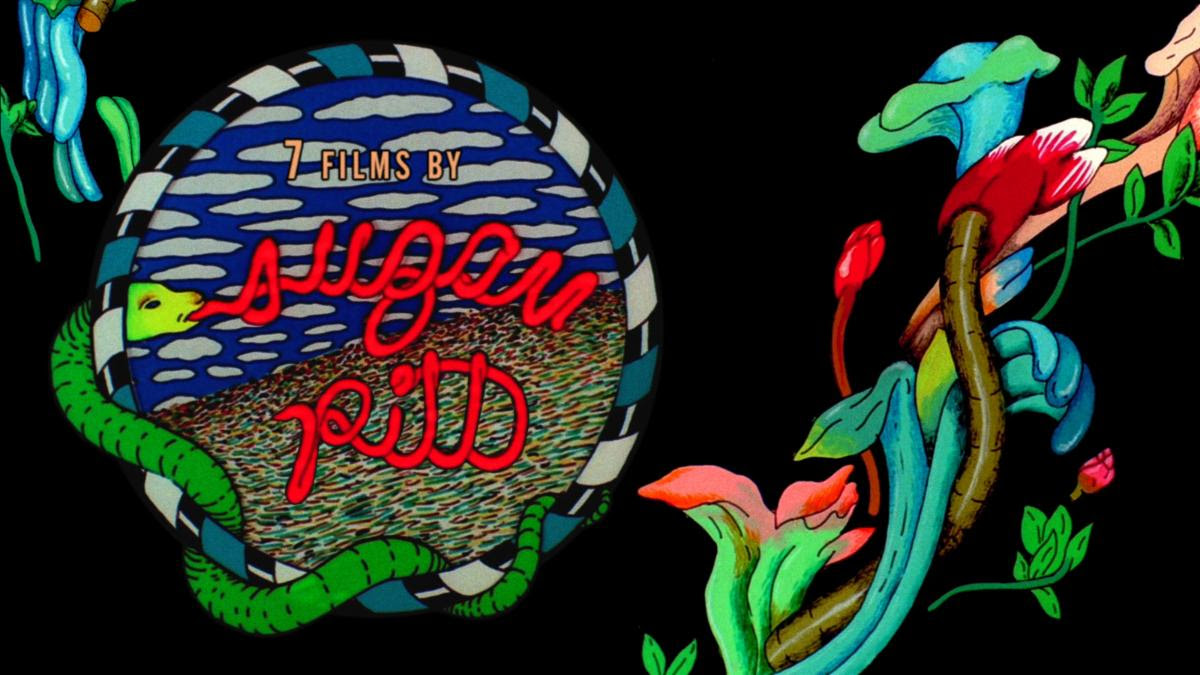
7 Films by Suzan Pitt
Featuring Suzan Pitt: Persistence of Vision, a 2006 documentary by Blue and Laura Kraning
Enter the wild and wondrous world of the late Suzan Pitt, an independent animation visionary whose oneiric psychosexual odysseys are direct channels to her dreams, nightmares, fantasies, and inner desires. Straining a diverse array of influences—from Leonora Carrington to Betty Boop to magical realism—through her subconscious, Pitt became an underground-animation legend with her DIY landmark Asparagus, a kaleidoscopic vegetal fantasia that blew minds when it toured the midnight-movie circuit on a double bill with David Lynch’s Eraserhead. Embedding deeply personal explorations of issues like mental illness (Joy Street) and mortality (El doctor) within whorls of biomorphic, Jungian imagery, Pitt’s films are triumphs of surrealist imagination from an artist who brought her unconscious to florid, flickering life.
- Crocus, 1971
- Jefferson Circus Songs, 1973
- Asparagus, 1979
- Joy Street, 1995
- El doctor, 2006
- Visitation, 2011
- Pinball, 2013
Thursday, November 14
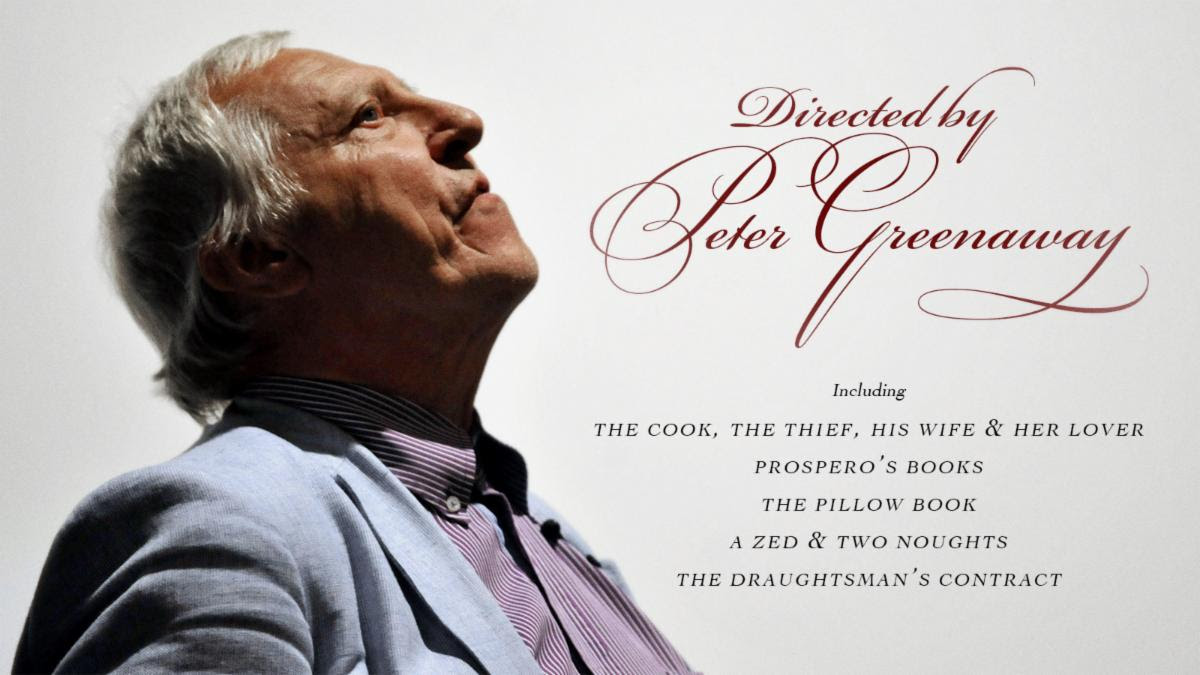
Directed by Peter Greenaway
Featuring a 2016 documentary portrait of Greenaway produced by FilmStruck
Endlessly fascinated by the baroque, the bizarre, and the esoteric, the uncompromisingly personal films of British iconoclast Peter Greenaway unfold like maddeningly intricate cabinets of curiosities. After fine-tuning his singular sensibility in a string of avant-garde shorts, Greenaway realized his idiosyncratic vision on an epic scale with his feature debut, The Falls, an apocalyptic faux documentary that established his penchant for arcane taxonomies and playful structuralist experimentation. He went on to achieve increasing critical and, at times, mainstream recognition with boldly unconventional works like the scabrous period mystery The Draughtsman’s Contract, the perversely zoological dark comedy A Zed & Two Noughts, and the brilliantly provocative erotic feast The Cook, the Thief, His Wife & Her Lover. Witty, outrageous, sumptuous, shocking, and unapologetically intellectual, Greenaway’s films are richly realized worlds unto themselves, intricately constructed by an auteur unafraid to indulge his most private obsessions.
- Intervals, 1973
- Windows, 1974
- Dear Phone, 1976
- H Is for House, 1976
- A Walk Through H, 1978
- Water Wrackets, 1978
- Vertical Features Remake, 1978
- The Falls, 1980
- The Draughtsman’s Contract, 1982
- A Zed & Two Noughts, 1985
- The Cook, the Thief, His Wife & Her Lover, 1989
- Prospero’s Books, 1991
- The Pillow Book, 1996
Friday, November 15
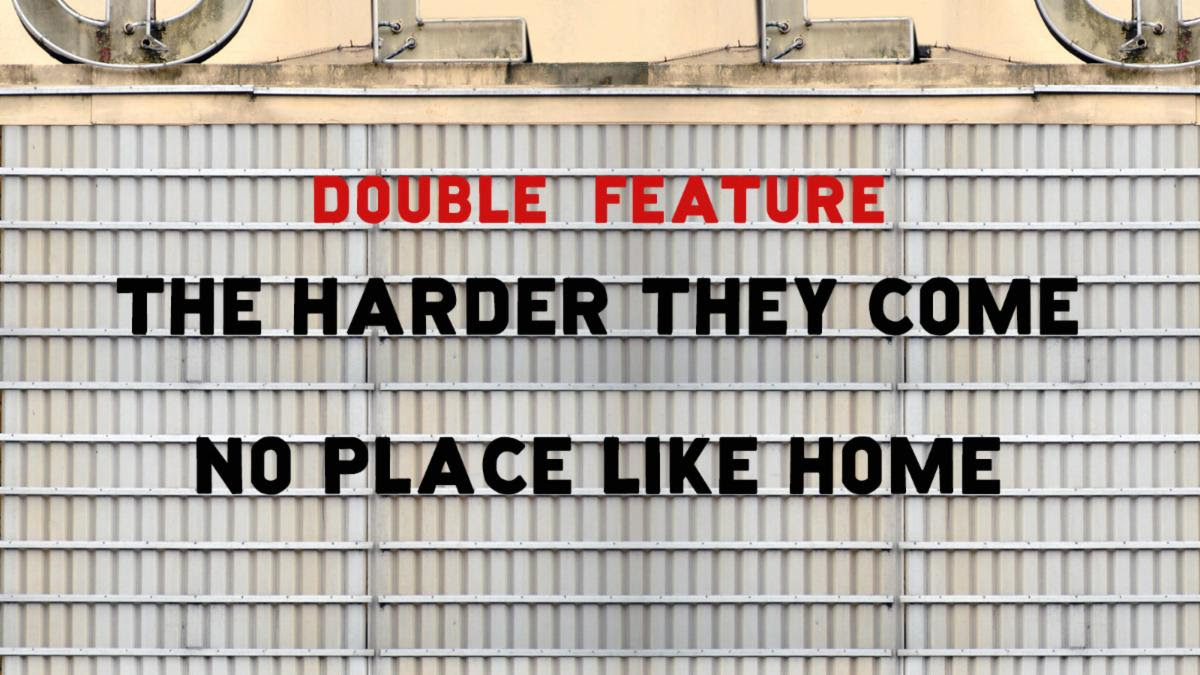
Double Feature: Jamdown Style
The Harder They Come and No Place Like Home
In 1972, Perry Henzell put Jamaican cinema on the map with his landmark cult classic The Harder They Come, a Robin Hood–esque crime fable starring legendary musician Jimmy Cliff that went on to become a phenomenon in its home country. Henzell’s long-lost sophomore feature, No Place Like Home, was shelved for three decades before finally emerging in 2005, offering a vital snapshot of rural Jamaica in the 1970s (as well as a glimpse of a pre-superstardom Grace Jones). Both films pulse with vibrant sights, sounds, and energy—as well as the intoxicating rhythms of their killer reggae, ska, and pop soundtracks.
Saturday, November 16
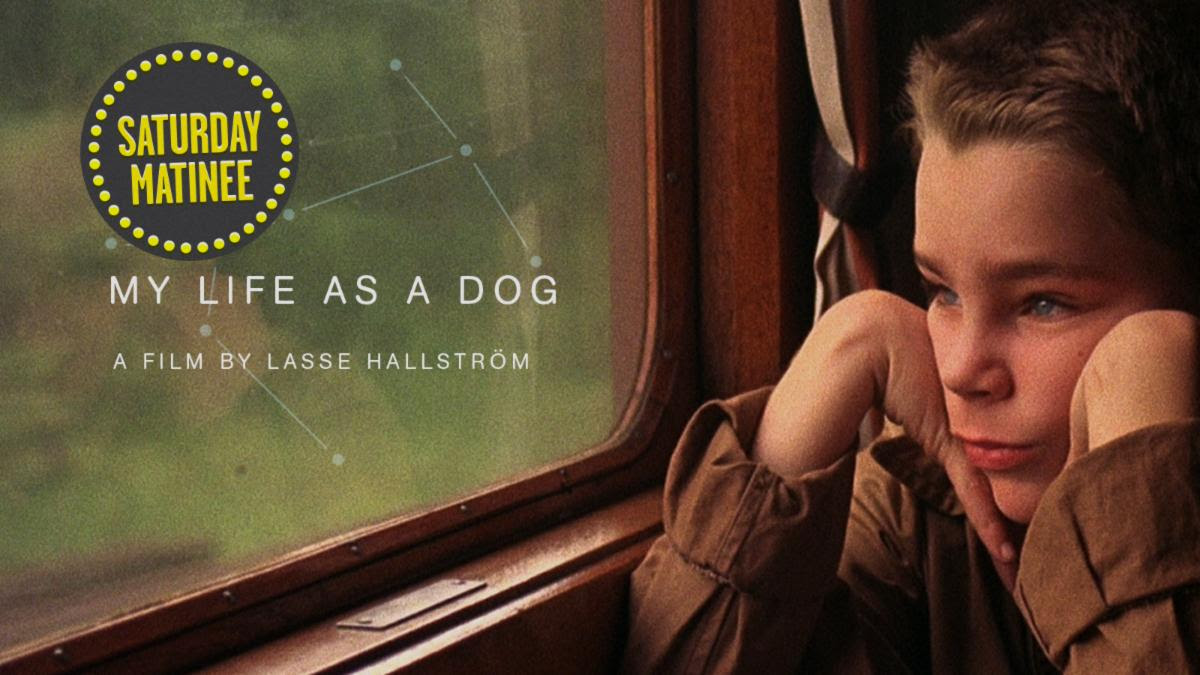
Saturday Matinee: My Life as a Dog
My Life as a Dog tells the story of Ingemar, a twelve-year-old from a working-class family sent to live with his uncle in a country village when his mother falls ill. There, with the help of the warmhearted eccentrics who populate the town, the boy finds both refuge from his misfortunes and unexpected adventure. Featuring an incredibly mature and unaffected performance by the young Anton Glanzelius, this film is a beloved and bittersweet evocation of the struggles and joys of childhood from Oscar-nominated director Lasse Hallström. SUPPLEMENTAL FEATURES: An early short feature by Lasse Hallström and an interview with the director.
Sunday, November 17

Queersighted: The Ache of Desire
Featuring a conversation between critics Michael Koresky and Melissa Anderson
Queer cinema has existed nearly as long as the movies themselves. You just have to know where to look for it. This new series brings attention to film history through a distinctly queer lens. Rather than provide a history of films featuring lesbian, gay, transgender, or bisexual characters and themes, Queersighted draws out the presence of a non-heteronormative, non-gender-binary cinema that has always existed alongside, parallel, or underneath the status quo. For most of cinema’s century-plus of existence, queer viewers have had to find their reflections in the corners and crevices of film history. Presenting films from around the world, from a diverse selection of filmmakers, this series reckons with that reality, allowing viewers to both see well-known movies in a new light and to discover new films that have been obscured by film history. This first installment, The Ache of Desire, presents a range of movies about that longing feeling that is so specific to the queer experience and to queer cinema itself, alongside a conversation between the series’s programmer, Michael Koresky, author of Film Comment’s Queer & Now & Then column, and film critic and editor Melissa Anderson.
- Persona, Ingmar Bergman, 1966
- Les rendez-vou d’Anna, Chantal Akerman, 1978
- Yentl, Barbara Streisand, 1983
- Desert Hearts, Donna Deitch, 1985
- Happy Together, Wong Kar-wai, 1997
- Mulholland Dr., David Lynch, 2001
- I Don’t Want to Sleep Alone, Tsai Ming-Liang, 2006
- Raging Sun, Raging Sky, Julián Hernández, 2009
- Stranger by the Lake, Alain Guiradie, 2013
Monday, November 18
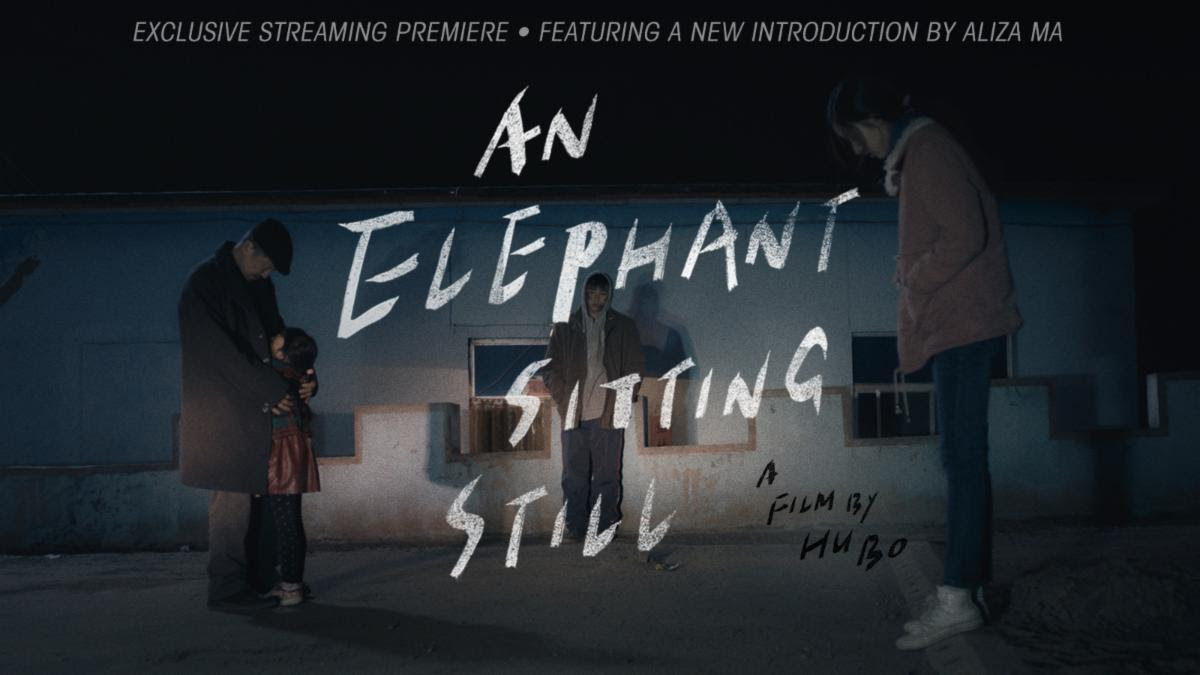
An Elephant Sitting Still
Exclusive streaming premiere, featuring a new introduction by critic and programmer Aliza Ma and Hu Bo’s 2017 short film Man in the Well
One of the most acclaimed feature debuts of the last decade, the first and, tragically, last film from Hu Bo, who took his own life at the age of twenty-nine, is a tour de force of existential fury and transcendent catharsis. Set under the gray skies of China’s industrial north, AN ELEPHANT SITTING STILL traces the intertwining lives of a band of dispossessed souls who come together on a pilgrimage toward a city in Manchuria where a circus elephant is rumored to be sitting still, seemingly oblivious to the pain and tribulations of the world at large. Composed in a series of bravura tracking shots, this profoundly felt epic gathers an overwhelming emotional power as it moves toward its soul-shattering climax.
Tuesday, November 19

Short + Feature: Table Manners
Next Floor and The Cook, the Thief, His Wife & Her Lover
Best not to eat before digging into these gut-busting banquets of grotesque gastronomy that double as subversive explorations of excess, corruption, gluttony, and greed. Your first course is Denis Villeneuve’s enigmatic short Next Floor, a darkly absurdist blend of culinary horrors and eat-the-rich class commentary. It’s the perfect appetizer before the full-course horror show that is Peter Greenaway’s audacious masterpiece The Cook, the Thief, His Wife & Her Lover, in which sex, food, and violence mingle to simultaneously sumptuous and stomach-churning effect.
Wednesday, November 20
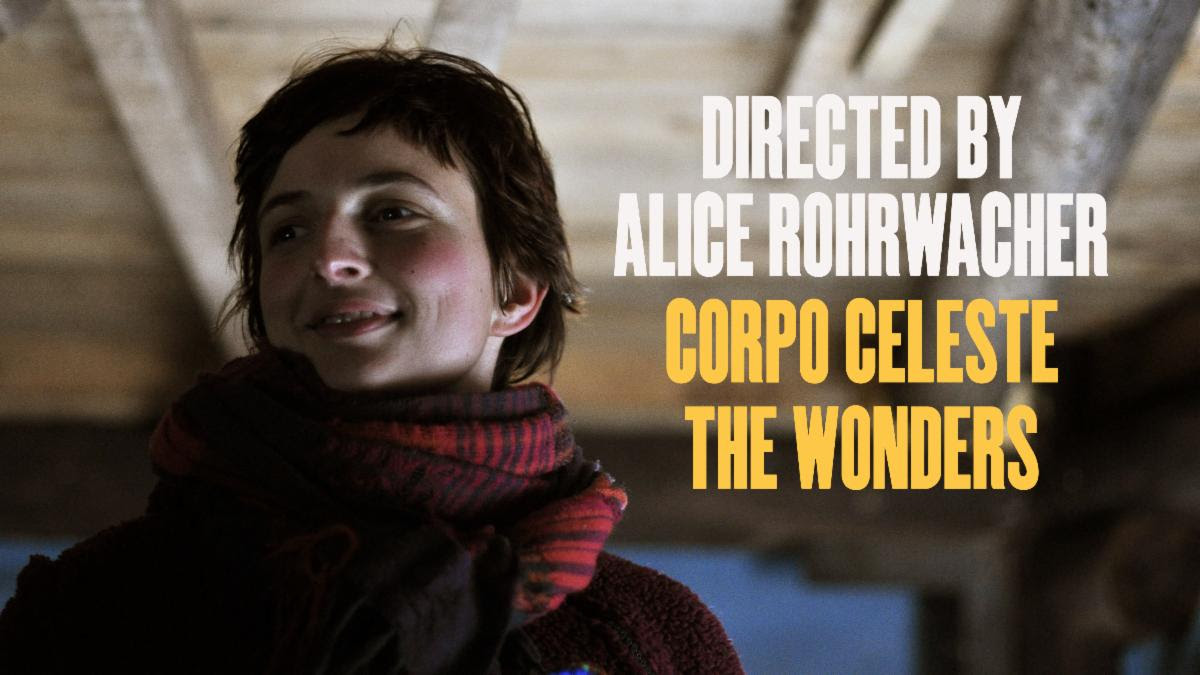
Directed by Alice Rohrwacher
Italian director Alice Rohrwacher established herself as one of contemporary cinema’s most sensitive and perceptive auteurs with her first two features, luminous coming-of-age tales imbued with rich humanist and spiritual dimensions. Her feature debut, Corpo celeste, is a remarkably clear-eyed portrait of a young woman grappling with the contradictions of organized religion, while her follow-up, The Wonders, channels her own experiences growing up in the Italian countryside into a warm, naturalistic pastoral. Blending elements of neorealism and folklore with a contemporary feminist worldview, these tender evocations of adolescent awakening are marvels of quiet, unassuming grace.
- Corpo celeste, 2011
- The Wonders, 2014
Thursday, November 21

The Koker Trilogy: Criterion Collection Edition #990/991/992
Abbas Kiarostami first came to international attention for this wondrous, slyly self-referential series of films set in the rural northern-Iranian town of Koker. Poised delicately between fiction and documentary, comedy and tragedy, the lyrical fables in The Koker Trilogy exemplify both the gentle humanism and the playful sleight of hand that define the director’s sensibility. With each successive film, Kiarostami takes us deeper into the behind-the-scenes “reality” of the film that preceded it, heightening our understanding of the complex network of human relationships that sustain both a movie set and a village. The result is a gradual outward zoom that reveals the cosmic majesty and mystery of ordinary life. SUPPLEMENTAL FEATURES: Abbas Kiarostami’s feature-length documentary Homework, a 1994 profile of the director, an interview with scholar Hamid Naficy, and more.
Friday, November 22
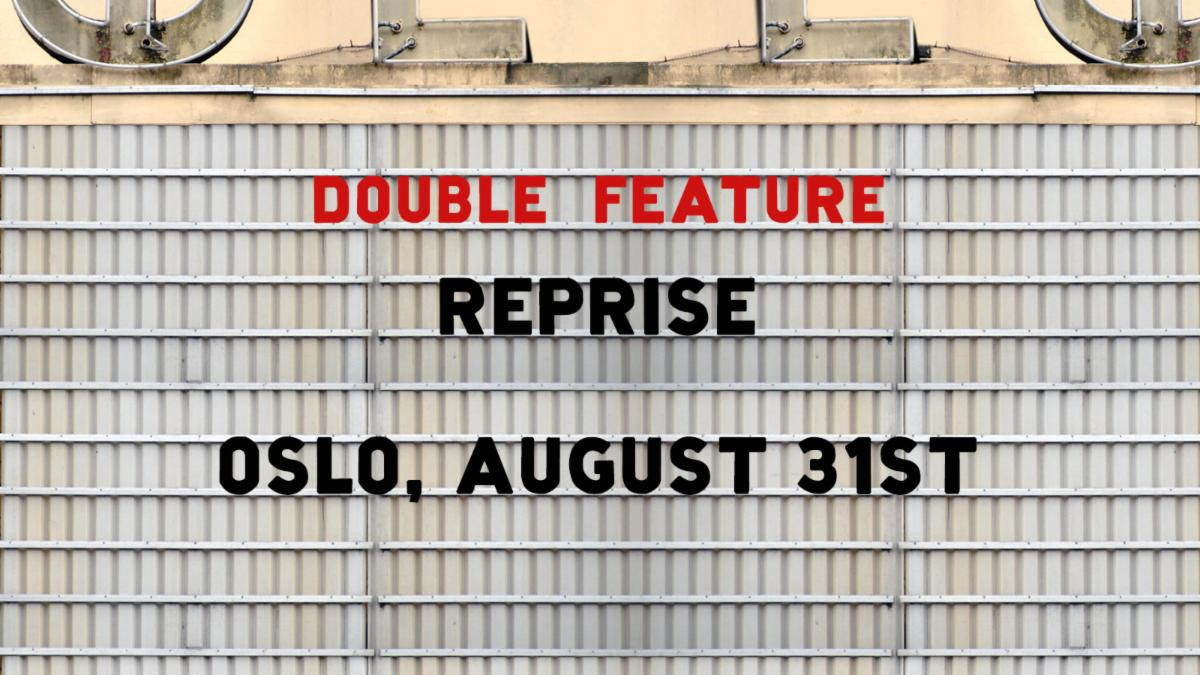
Double Feature: As Triers Go By
Reprise and Oslo, August 31st
Shape-shifting Norwegian auteur Joachim Trier burst onto the scene with these compassionate, richly psychological character studies, the first two films in his planned “Oslo Trilogy” (the last installment of which is currently in production). Bristling with nervy energy, his feature debut, Reprise, shows off his dazzling stylistic command as it traces the evolving friendship between two aspiring writers whose lives are rocked by romantic, professional, and emotional turmoil. Trier takes a movingly restrained approach in his sophomore feature Oslo, August 31st, a harrowing, intimate immersion in the life of a recovering drug addict teetering on the edge of oblivion.
Saturday, November 23

Saturday Matinee: Meet Me in St. Louis
This glowingly nostalgic slice of turn-of-the-century Americana follows the daughters of the Smith family of St. Louis—including Esther (Judy Garland), Rose (Lucille Bremer), and Tootie (Margaret O’Brien)—over the course of one year as they experience love, celebrate the holidays, deal with the fallout of their father’s decision to move the family to New York, and eagerly anticipate the coming 1904 World’s Fair. Vincente Minnelli’s gorgeous period production design and the indelible musical set pieces—including Garland’s renditions of the rousing “The Trolley Song” and the achingly bittersweet “Have Yourself a Merry Little Christmas”—have made this beloved classic a perennial holiday favorite.
Sunday, November 24

Karyn Kusama’s Adventures in Moviegoing
The slyly subversive films of Karyn Kusama breathe fresh life into well-tread genres ranging from the sports drama (Girlfight) to teen horror (Jennifer’s Body) to the detective thriller (Destroyer) through their daring tonal shifts and complex depictions of strong, fully realized women. In this episode of Adventures in Moviegoing, Kusama sits down with presenter and critic Alicia Malone to discuss the films she loves, including art-house classics by titans like Chantal Akerman, Satyajit Ray, and Akira Kurosawa.
- Pather Panchali, Satyajit Ray, 1955
- High and Low, Akira Kurosawa, 1963
- Jeanne Dielman, 23, quai du Commerce, 1080 Bruxelles, Chantal Akerman, 1975
- Fanny and Alexander, Ingmar Bergman, 1982
- Come and See, Elem Klimov, 1985
- Near Dark, Kathryn Bigelow, 1987
Monday, November 25
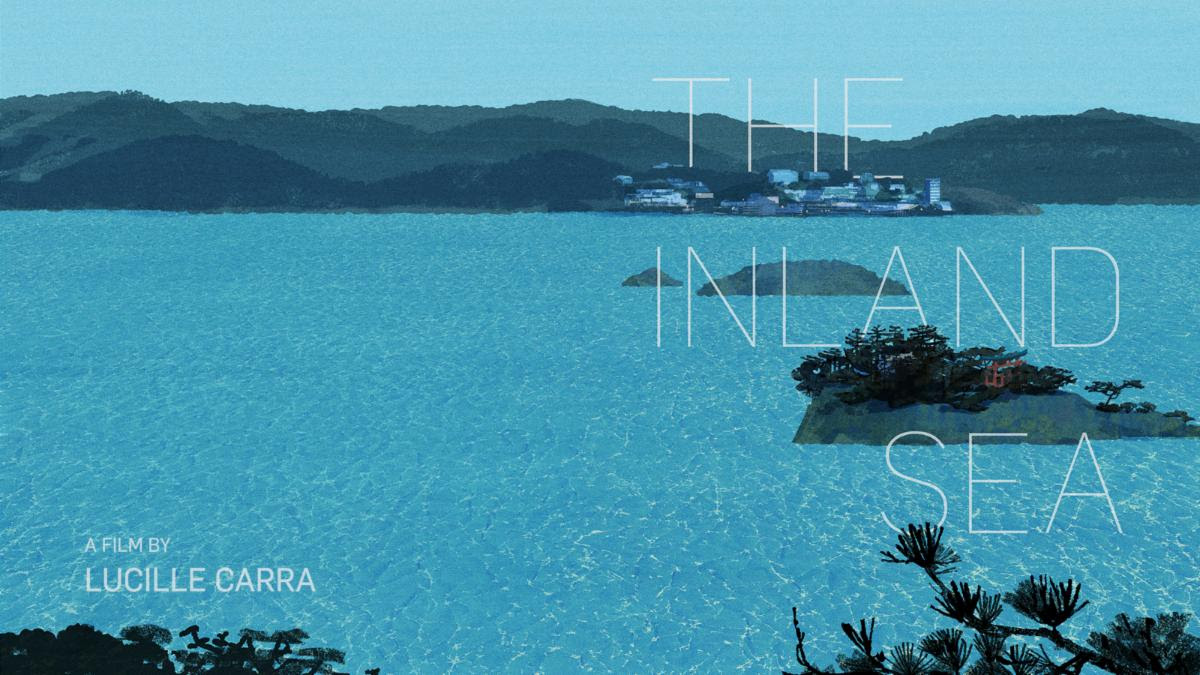
The Inland Sea: Criterion Collection Edition #988
In 1971, author and film scholar Donald Richie published a poetic travelogue about his explorations of the islands of Japan’s Inland Sea, recording his search for traces of a traditional way of life as well as his own journey of self-discovery. Twenty years later, filmmaker Lucille Carra undertook a parallel trip inspired by Richie’s by-then-classic book, capturing images of hushed beauty and meeting people who still carried on the fading customs that Richie had observed. Interspersed with surprising detours—visits to a Frank Sinatra–loving monk, a leper colony, an ersatz temple of plywood and plaster—and woven together by Richie’s narration as well as a score by celebrated composer Toru Takemitsu, The Inland Sea is an eye-opening voyage and a profound meditation on what it means to be a foreigner. SUPPLEMENTAL FEATURES: An interview with Lucille Carra, a conversation between filmmaker Paul Schrader and cultural critic Ian Buruma about Donald Richie, and an interview with Richie.
Tuesday, November 26

Short + Feature: Someone’s Listening
Hacked Circuit and The Conversation
In her disquieting short Hacked Circuit, director Deborah Stratman conjures a sense of all-pervasive surveillance while giving us a behind-the-scenes look at the work of Foley artists as they create the sound effects for the final scene of the seventies paranoia classic The Conversation. Starring Gene Hackman as a sound-surveillance expert who becomes convinced he has uncovered a murder plot, Francis Ford Coppola’s haunting thriller is both a sinister encapsulation of Nixon-era societal unease and a creepily prescient vision of life in our current surveillance age.
Wednesday, November 27

Just Another Girl on the I.R.T.
Featuring a new introduction by director Leslie Harris
Leslie Harris’s indie touchstone made a splash when it won a special jury prize at Sundance in 1993, offering a window into a world still sorely underrepresented in mainstream cinema: that of an ambitious, outspoken, and hilarious young black woman growing up in Brooklyn and navigating the trials and tribulations of adolescence. Boasting a charismatic performance from star Ariyan A. Johnson and a killer hip-hop and R&B soundtrack (with an emphasis on women artists), Just Another Girl on the I.R.T. is both a vivid time capsule of 1990s New York and a bracingly raw and real coming-of-age portrait that’s lost none of its vitality.
Thursday, November 28

Glorious Food!
Just in time for Thanksgiving, feast your eyes on a buffet of some of cinema’s most sumptuous banquets, a smorgasbord of lip-smacking delicacies that delight in the sensual pleasures and social rituals of eating. Start with a bowl of lusciously slurpable ramen in the freewheeling Japanese satire Tampopo, then tuck into couscous so fragrant it practically wafts off the screen in the richly textured Franco-Arab family portrait The Secret of the Grain. Next up: an epic celebration of authentic Italian cooking in Stanley Tucci and Campbell Scott’s charming Big Night, a decadent seven-course spread of French haute cuisine as served up in the senses-ravishing Oscar winner Babette’s Feast, and a tender portrait of a family told through their weekly Sunday meals in Ang Lee’s Eat Drink Man Woman. And if you’ve still got room for more, there is gastronomic debauchery galore courtesy of Věra Chytilová and Luis Buñuel, offbeat odes to garlic and Cajun cuisine from Les Blank, a most memorable dinner with Andre, and more. Bon appétit!
- The Exterminating Angel, Luis Buñuel, 1962
- Tom Jones, Tony Richardson, 1963
- Daisies, Věra Chytilová, 1966
- Garlic Is as Good as Ten Mothers, Les Blank, 1980
- My Dinner with Andre, Louis Malle, 1981
- Tampopo, Juzo Itami, 1985
- Babette’s Feast, Gabriel Axel, 1987
- The Cook, the Thief, His Wife & Her Lover, Peter Greenaway, 1989
- Yum, Yum, Yum! A Taste of Cajun and Creole Cooking, Les Blank, 1990
- Delicatessen, Jean-Pierre Jeunet and Marc Caro, 1991
- Eat Drink Man Woman, Ang Lee, 1994
- Big Night, Campbell Scott and Stanley Tucci, 1996
- The Secret of the Grain, Abdellatif Kechiche, 2007
- Still Walking, Hirokazu Kore-eda, 2008
Friday, November 29

Double Feature: Fraud Alert
The Baron of Arizona and F for Fake
Samuel Fuller and Orson Welles bring a mischievous sleight of hand to these slippery accounts of some of history’s most notorious scammers, cheats, and cons. Based on a stranger-than-fiction true story, Fuller’s offbeat western-noir gem The Baron of Arizona stars Vincent Price at his unctuous best as a nineteenth-century master swindler who hatches a devious scheme to steal the Arizona Territory for himself. Then, Welles pulls off the ultimate cinematic magic trick in his slyly inventive essay film F for Fake, a meta-documentary investigation of art, truth, and illusion that is itself an elaborately constructed puzzle-box of duplicities and deceptions.
Saturday, November 30

Saturday Matinee: A Kid for Two Farthings
Set against a rich evocation of postwar London’s East End Jewish quarter, Carol Reed’s touchingly bittersweet Technicolor fable concerns a young boy (Jonathan Ashmore) who comes into possession of a curiously-horned goat he believes to be a unicorn with the power to grant wishes. And then, miraculously, the dreams of those around him really do seem to come true … Mixing poetic neorealism with child’s-eye fantasy, Reed crafts a delicately moving ode to the power of belief.
Complete list of films premiering on the Criterion Channel this month:
- 12 Angry Men, Sidney Lumet, 1957
- An American in Paris, Vincente Minnelli, 1951
- And Life Goes On, Abbas Kiarostami, 1992
- The Arbor, Clio Barnard, 2010**
- The Band Wagon, Vincente Minnelli, 1953
- The Barkleys of Broadway, Charles Walters, 1949
- Big Night, Campbell Scott and Stanley Tucci, 1996
- Blow Out, Brian De Palma, 1981
- Brigadoon, Vincente Minnelli, 1954**
- Broadway Melody of 1940, Norman Taurog, 1940
- Cabin in the Sky, Vincente Minnelli, 1943
- Caché, Michael Haneke, 2005
- The Conversation, Francis Ford Coppola, 1974
- The Cook, the Thief, His Wife & Her Lover, Peter Greenaway, 1989
- Corpo celeste, Alice Rohrwacher, 2011
- Crocus, Suzan Pitt, 1971
- Dear Phone, Peter Greenaway, 1976
- Death of the Soundman, Sorayos Prapapan, 2017
- Delicatessen, Jean-Pierre Jeunet and Marc Caro, 1991
- Diva, Jean-Jacques Beineix, 1981
- El doctor, Suzan Pitt, 2006
- The Draughtsman’s Contract, Peter Greenaway, 1982
- Easter Parade, Charles Walters, 1948
- Eat Drink Man Woman, Ang Lee, 1994
- An Elephant Sitting Still, Hu Bo, 2018
- A Face in the Crowd, Elia Kazan, 1957
- The Falls, Peter Greenaway, 1980
- Five Easy Pieces, Bob Rafelson, 1970
- Give a Girl a Break, Stanley Donen, 1953
- H Is for House, Peter Greenaway, 1976
- Hacked Circuit, Deborah Stratman, 2014
- The Harder They Come, Perry Henzell, 1972
- The Harvey Girls, George Sidney, 1946
- Homework, Abbas Kiarostami, 1989
- I Don’t Want to Sleep Alone, Tsai Ming-liang, 2006
- I Love Melvin, Don Weis, 1953
- In the Good Old Summertime, Robert Z. Leonard, 1949
- The Inland Sea, Lucille Carra, 1991
- Intervals, Peter Greenaway, 1969
- It’s Always Fair Weather, Stanley Donen and Gene Kelly, 1955
- Jefferson Circus Songs, Suzan Pitt, 1973
- Joy Street, Suzan Pitt, 1995
- Just Another Girl on the I.R.T., Leslie Harris, 1992
- Kes, Ken Loach, 1969
- The King of Marvin Gardens, Bob Rafelson, 1972
- Klute, Alan J. Pakula, 1971
- The Last Detail, Hal Ashby, 1973
- Lili, Charles Walters, 1953
- The Lives of Others, Florian Henckel von Donnersmarck, 2006**
- Meet Me in St Louis, Vincente Minnelli, 1944
- Mulholland Dr., David Lynch, 2001
- Near Dark, Kathryn Bigelow, 1987
- No Place Like Home, Perry Henzell, 2006
- On the Town, Stanley Donen and Gene Kelly, 1949
- Oslo, August 31st, Joachim Trier, 2011**
- The Pillow Book, Peter Greenaway, 1996**
- Pinball, Suzan Pitt, 2013
- The Pirate, Vincente Minnelli, 1948
- Prospero’s Books, Peter Greenaway, 1991
- Raging Sun, Raging Sky, Julián Hernández, 2009
- Reprise, Joachim Trier, 2006
- Seven Brides for Seven Brothers, Stanley Donen, 1954
- Stranger by the Lake, Alain Guiraudie, 2013**
- Summer Stock, Charles Walters, 1950
- That’s Entertainment!, Jack Haley Jr., 1974
- They Live By Night, Nicholas Ray, 1948
- Through the Olive Trees, Abbas Kiarostami, 1994
- Vertical Features Remake, Peter Greenaway, 1978
- Visitation, Suzan Pitt, 2011
- A Walk Through H, Peter Greenaway, 1978
- Water Wrackets, Peter Greenaway, 1990
- Windows, Peter Greenaway, 1975
- The Wonders, Alice Rohrwacher, 2014
- Yentl, Barbra Streisand, 1983
- A Zed & Two Noughts, Peter Greenaway, 1985
**Available in the U.S. only


